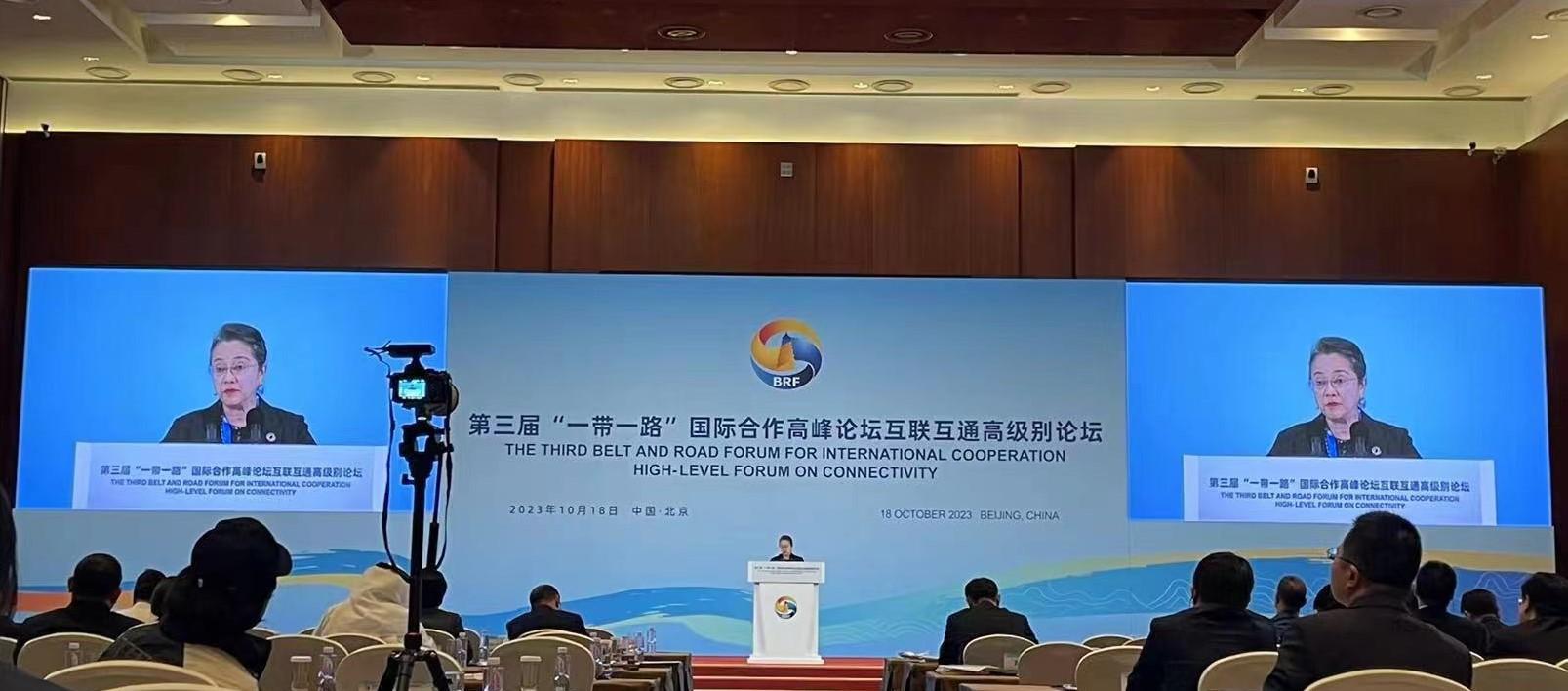ESCAP ES's speech at the "Third Belt and Road Forum for International Cooperation: High-Level Forum on Connectivity"
Delivered by Ms. Armida Salsiah Alisjahbana, Under-Secretary-General of the United Nations and Executive Secretary of the Economic and Social Commission for Asia and the Pacific (ESCAP)
 Excellencies, ladies and gentlemen,
Excellencies, ladies and gentlemen,
It is my pleasure to participate – once again – in this High-Level Belt and Road Forum for International Cooperation and to speak on the critical issue of connectivity in the global open economy.
Achieving the Sustainable Development Goals goes hand in hand with accelerating our pace in connecting our economies in an increasingly synergic way, maximizing benefits from coordinated advances in transport, energy, ICT and trade connectivity.
In transport connectivity, ESCAP member States continue their joint efforts on developing the regional multimodal transport network.
In the last few years, the transport infrastructure network of the Asian Highway, Trans-Asian Railway and Dry ports has been further updated and expanded across the region. Major missing connections are being addressed with such initiatives as the operationalization of the China-Lao PDR railway link.
Maritime connectivity and port development have also come to the forefront of public policies, especially due to the pandemic and other disruptions.
ESCAP’s Regional Action Programme for Sustainable Transport Development for 2022 to 2026 also supports countries in addressing the operational connectivity challenges and enhancing its resiliency and environmental performance.
Energy connectivity is increasingly being recognized as a key enabler of the energy transition. It allows countries to improve the security, affordability and sustainability of power systems by increasing access to lower cost and more diverse renewable energy resources.
Our work on this topic is guided by our Regional Road Map on Power System Connectivity,
The endorsement of the Road Map in 2021 reflects a common recognition among our member States of a simple but critically important point: to accelerate progress on the energy transition in our region, we must work together.
In response to the swift emergence of digital innovation, we are partnering with member States and other stakeholders through the Asia-Pacific Information Superhighway Initiative.
The goal is to expand seamless networks of high-speed broadband connections that can reach millions of un- or underserved individuals and open up new digitally enabled development opportunities across the vast Asia-Pacific region.
In this connection, I am pleased to inform you that the “Asia-Pacific Ministerial Conference on Digital Inclusion and Transformation 2024” will be held next year.
Finally, let me express our sincere appreciation for China's substantial contribution to trade connectivity through the advancement of cross-border paperless trade.
China played a vital role in negotiating the Framework Agreement on the Facilitation of Cross-Border Paperless Trade in Asia and the Pacific, which came into effect in February 2021.
Notably, China is among the first group of countries to sign the treaty and has been actively engaged in furthering concrete actions to promote paperless trade.
Moreover, China has been extending financial assistance to support developing and least developed countries in the region in overcoming barriers on their path towards paperless trade.
Distinguished participants,
These are just a few of many initiatives and examples of our advances in connectivity,
which underscores the collective commitment to jointly promote connectivity in Asia and the Pacific through regional cooperation.
I am confident that this third BRI Forum will contribute to this joint effort to connect everything for everyone all the time in a safe, inclusive and responsible way.
Thank you.
